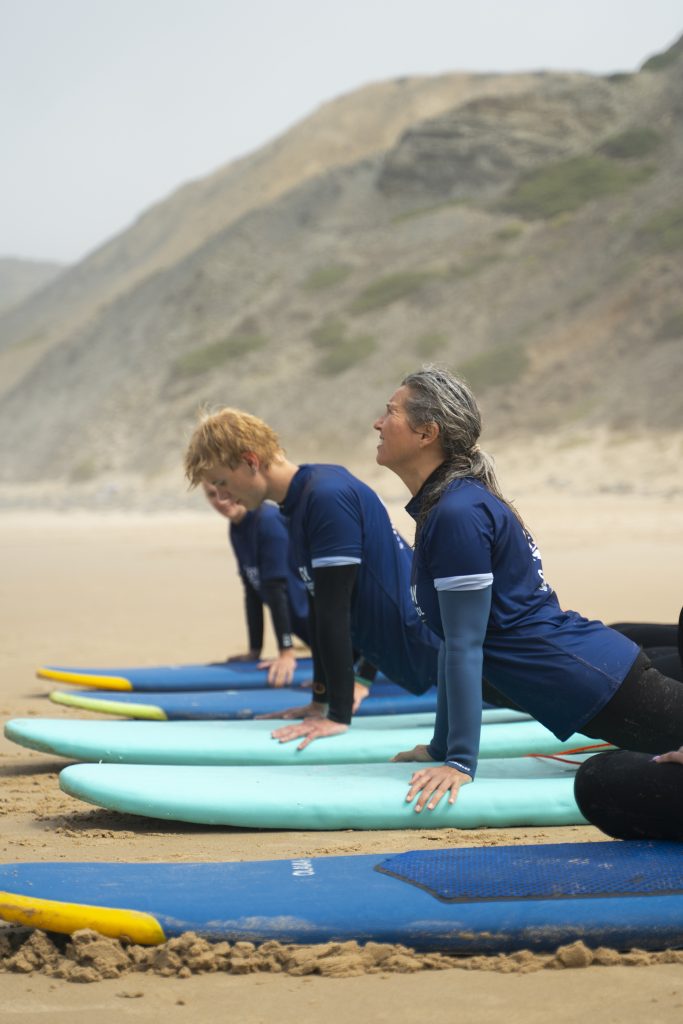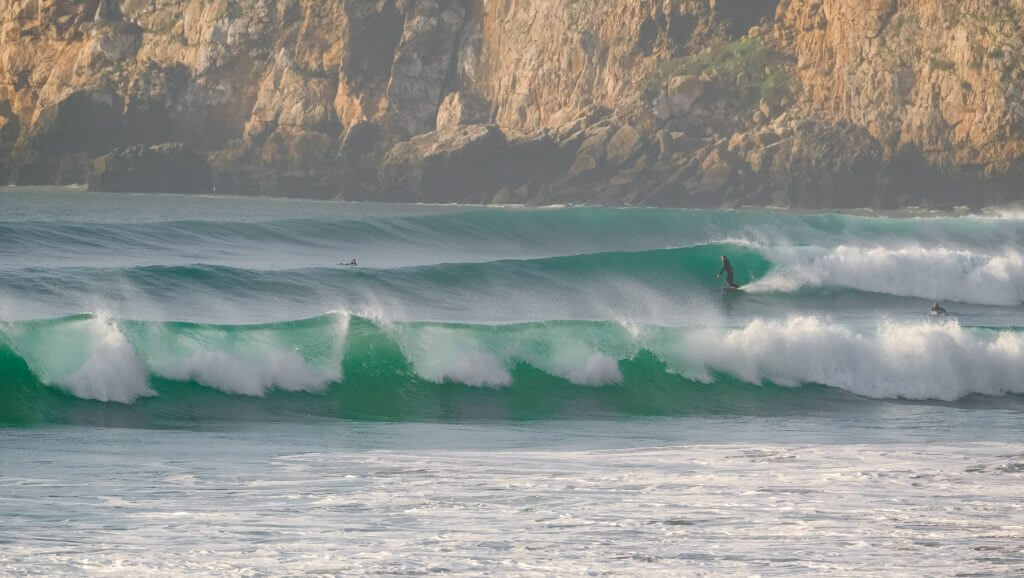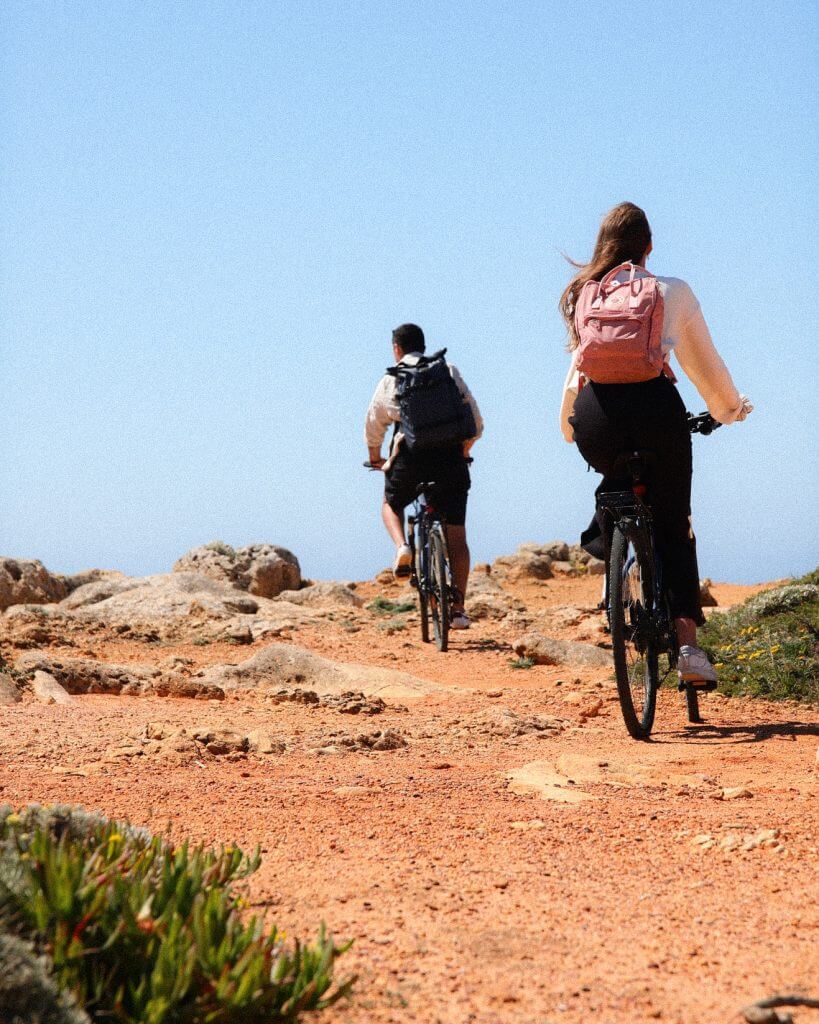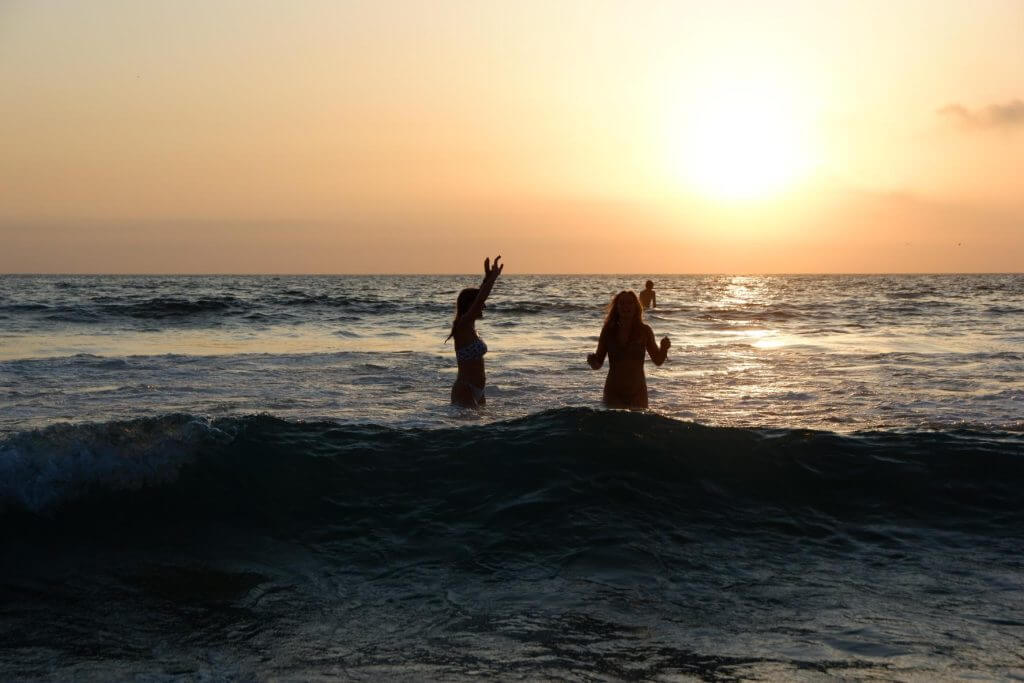Whatever your plan is, one thing is certain: packing your surfboard is just as crucial as planning your vacation. So, here are some tips on how to prepare for a surfing trip.

1. Stay at a Surfing Camp
When you’re ready to plan your vacation, the first step is to decide where you want to stay. We recommend a surfing hotel or a surf camp. A surf camp is an excellent option if you want to improve your surfing skills; great accomodations, systematic surf training with certified teachers and other activities tend to be included. One of the great benefits off course is that you will tend to meet many like-minded people who are as keen on learning to surf as you are!
Sagres Sun Stay offers surfing lessons taught by experts as well as the equipment you will need to excel. This can be the best option for beginners!
2. Packing for your surfing trip
There are many different surf locations around the planet that offer you different opportunities to learn about different cultures. Your chosen destination will have an impact on what kind of critical equipment you will need. However, there are a few items that you will almost certainly need for your surfing trip no matter where you go:
- Towel for the beach
- Hat
- Wax (if you bring your own board)
- Sunscreen
- Wetsuits and surfboard
- Charger, phone, camera and other electronic devices
3. Choose whether to travel with or without a surfboard
The most critical item you’ll need on your trip is your surfboard. However, renting a surfboard nearby can be a good option if you don’t enjoy lugging around large baggage. You should look up the location you’re planning on going to ahead of time to see what kind of equipment is available for rent. Sagres Sun Stay offers a wide range of boards for your trip.
If renting a surfboard isn’t for you, or if you want to remain for a longer time, check for local surf shops that offer used boards, which you can resell when you’re ready to go.
If you want to travel with a personal surfboard, be sure to check the weight/size limitations and any extra costs that the airline may charge. You may find out more on the website or by contacting customer care. Also ensure that your chosen accommodation has all the necessary washing facilities and secure storage to ensure your board can remain cleand and safe while you are not surfing.
4. Surf with a positive attitude and a cheerful mind
It’s normal to feel frightened and worried while attempting anything unfamiliar for the first time. It’s the same with learning to surf for beginners. Before you begin your surfing adventure, you must arrive at your first surf class with a positive attitude and a readiness to develop new skills.
Set aside any negative sentiments or concerns over falling a few times as you learn. To get more out of your surf class, get engaged with an open mind and be willing to give it your all. If it helps, try to take our yoga class before to warm up your body (and mind!) or spend 15 minutes meditating to start surfing with a fresh mind.
Wrapping Up
Surfing allows you to connect more with nature and your body. While it is a physically demanding sport, you don’t have to worry. Our surfing teachers show you how to stretch properly, guide you on physical preparation, and help you develop your skills.
To prepare for your surfing trip, you can contact us for more detailed expert advice!




